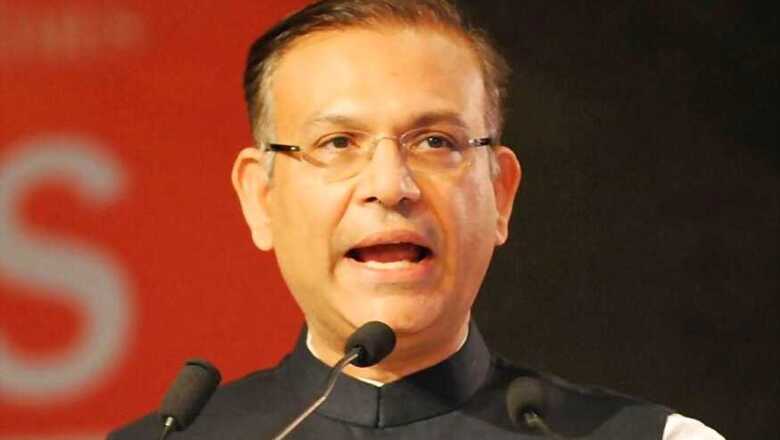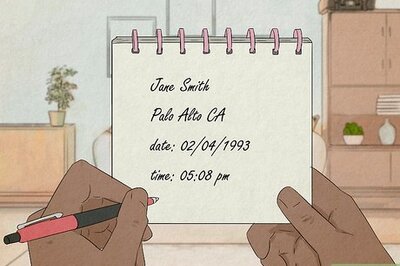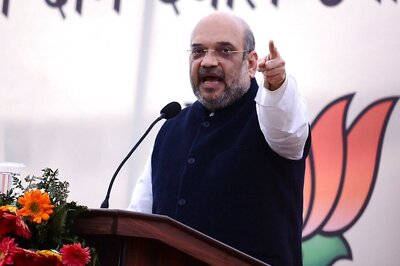
views
New Delhi: Targeting April 2017 for the rollout of Goods and Services Tax, the government is betting on support from smaller regional parties to pass the national sales tax legislation in the Parliament session from July, and expects approval for supporting laws by year-end.
GST was earlier planned to be introduced from April 1, 2016, converting 29 states into a single market through the new indirect tax regime, but the deadline was missed as the bill to roll it out remains stalled in the opposition- dominated Rajya Sabha.
"If we can pass it in the monsoon session (of Parliament beginning in July), then we can implement it in April 1, 2017," Minister of State for Finance Jayant Sinha said.
The government has enough backing from smaller regional parties to pass the Bill in Rajya Sabha without support from the main opposition Congress party, he said.
Congress, which first proposed the constitutional amendment in 2006, is demanding capping the overall rate at 18 per cent and scrapping an additional 1 per cent tax designed to compensate manufacturing-heavy states that fear losing revenue once the measure is implemented.
After Parliament approves the constitutional amendment to allow GST, it needs to be ratified by more than half of states. Then Parliament must pass another bill to implement the GST, Sinha said.
"First the Constitution Amendment will have to be ratified by 50 per cent of the state assemblies, then the GST Bill will be passed by all the state assemblies," he said.
After the Constitution Amendment Bill is passed in Parliament, there are three more legislations - Central GST (CGST), State GST (SGST) and Integrated GST (IGST) - which are required to be passed.
"Of course, there is a complicated legislative calendar that we have to work through. Then there are implementation issues which are working, but we feel that we can get all of that done in time," he said.
Meanwhile, the Empowered Committee of State Finance Ministers will deliberate on the model GST law at a two-day meeting in Kolkata beginning tomorrow. Finance Minister Arun Jaitley will participate in the meeting and try to iron out differences with the states over the new regime.
The GST bill -- which will help create a single national sales tax to replace several state and central levies -- has already been approved by the Lok Sabha or Lower House of Parliament and is pending in the Upper House where the government doesn't have a majority.
Sinha hoped to get support of most of the parties on GST Bill so that it is passed with national consensus. "Our expectation is that we will get support from many parties. We would like it to be passed with a national consensus, so we would like all parties to approve it.
In the Lok Sabha when the Constitution Amendment was passed, it was passed unanimously. So we would like it to be passed in Rajya Sabha unanimously as well," he said.




















Comments
0 comment